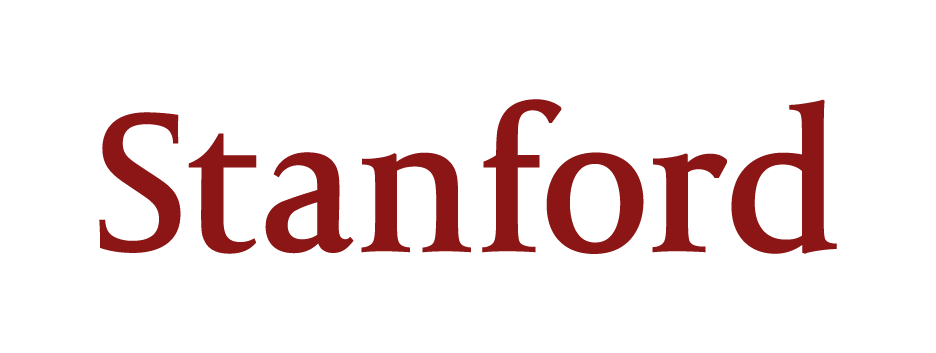Public scholarship as a scholarly responsibility: An interview with Sam Wineburg

Our second Public Scholarship Interview features Professor Sam Wineburg at Stanford Graduate School of Education. Dr. Wineburg has been leading the Stanford History Education Group (sheg.stanford.edu), whose curriculum and assessments have been downloaded more than ten million times. His current research focuses on how people judge the credibility of digital content, research that has been reported in various media outlets including the Wall Street Journal, New York Times, Washington Post, NPR, Time Magazine, BBC, and Die Zeit. We are grateful for Dr. Wineburg’s time sharing his perspective and experience with and about “public scholarship.”
Minju Choi (MC): What does “public scholarship” mean to you?
Sam Wineburg (SW): Public scholarship is scholarship that gets to ordinary people, and breaks out of the confines of scholarly journals that have limited circulations and that often are only read by other scholars. So, anything that reaches a broader public, whether it's a YouTube video, or an op-ed in a newspaper, or a public facing website is in, in my definition, public scholarship. It's scholarship that informs the lay public. And it’s presented in a way that doesn’t require a tremendous amount of technical expertise in order to understand.
MC: Could you tell us about the ways in which you have engaged in public scholarship, particularly through the Stanford History Education Group?
SW: My work related to “public scholarship” with the Stanford History Education Group (digital platform) started somewhat by accident. Abby Reisman, a professor now at the University of Pennsylvania, and I did an intervention for the San Francisco Unified School Districts about testing the “Reading like a Historian” curriculum and randomized control trial in schools. The results were very positive. The thing that the school district was most interested in was the fact that students’ reading levels increased. And so they came to us and said, “Would you create a website so that all of the teachers in the district can take advantage of your materials?” We never had created a website, and I hadn't really thought about creating a website until 2007 when we received the financial resources and support to build a website. Once we built a website, we called ourselves the Stanford History Education Group and shared our materials online. After about six months, we looked at Google Analytics and realized that our materials were being downloaded by a lot more teachers than those in San Francisco. And in like eight months, we had somewhere near a half a million downloads, which is way more than the 112 history teachers in San Francisco. I call this “the accidental empire.” That's how it all started – this idea of putting up quality materials on the Web for free. And watching what happens when you leave quality materials by the “digital curb.” If those materials are of high quality, they catch on. So that's the origin story of the Stanford History Education group’s website. Our website’s success started off as an accident, but my team was quick to realize that we had the potential to have a much greater impact. We’re currently going on 12 million downloads of curriculum from our website; we have nearly a half million registered users. We are listed on 34 state departments of education curriculum lists. We are the largest purveyor of free curriculum materials in history/social studies. And since 2016, we have expanded our work to include “Civic Online Reasoning” , or how people make wise decisions about what to believe on the Internet.
MC: What are some challenges you faced in engaging with public scholarship work?
SW: There are a lot of research articles that are important, that could inform education, and that could stimulate people's thinking. But, they're often written in a way that is so convoluted, and clumsy and so full of jargon, with so many 50-word sentences, that no one except a very small audience will slog through it. So I guess the question to ask is not what's the value of public scholarship but what's the value of “nonpublic scholarship”? Education is not like medicine, where a small group of people read the New England Journal of Medicine and then make health decisions that affect millions. Education is an applied field. If you are deeply engaged in your research and you feel that you're doing important work, then you have a moral obligation to tell the world about it and do so in a way that actually reaches the world. If scholars think that they've discharged their responsibility after they published their work in a journal that has a circulation of 2000, then they're seriously kidding themselves.
MC: What advice would you give to early career scholars who are thinking about meaningful ways to engage in public scholarship?
SW: If you are a new assistant professor, and you have to worry about tenure, then you have to worry about tenure. You need a certain number of publications that reflect rigorous, high-quality intellectual work. But my advice would be that at the same time that you're writing those research articles, you should also be writing an accompanying article that reaches a broader audience. I've always felt that if I'm going to publish a piece intended for a scholarly audience, I ask myself what kind of public facing product can also come out of it.
MC: What does equity in education mean to you in the context of public scholarship?
SW: Equity is about giving people voice. Certain voices are systematically silenced. The more diverse voices that are out there in the public space, the better we understand each other, and the better we learn from each other. So, to me, public scholarship is by definition, an equity issue.
Schools of education that ignore ways to reach a broader audience do so at their peril. Schools of education are often the first unit on the chopping block, when a university faces a deficit. And it's even more perilous at elite universities. So the University of Chicago used to have a very famous department of education founded by John Dewey, but it's gone. Yale used to have a Department of Education. Duke used to have a department of education. And until a few years ago, Emory University had a Department of Education. Now, why is it that schools of education at elite universities disappear? It is, in part, because of the choices they made. They put all of their eggs in the scholarship basket, thinking that research alone would save them. They needed to make themselves indispensable to a broader constituency. They needed to cultivate among every faculty member the commitment to get their work out there. They needed to make sure that the broad public – teachers, parents, citizens at large – understand that the work conducted in schools of education addresses the most pressing needs of education. My belief is that if schools of education want to ensure their longevity, they need to realize that the world is a little bit bigger than AERA. We possess a great deal of knowledge about how to improve education. It’s about time we thought hard about new ways to share that knowledge.
The above conversation with Dr. Wineburg points to the need for all academic institutions to be responsible for public scholarship. Particularly as an applied field of study, Dr. Wineburg notes that education schools have an even greater moral responsibility to make knowledge available to a wider audience. His work with the Stanford History Education Group offers a model of such public scholarship.
Photo by ROBIN WORRALL on Unsplash
See additional work by Professor Sam Wineburg:
- Stanford History Education Group
- Op-Ed in LA Times: Why can’t a generation that grew up online spot the misinformation in front of them?
- Op-Ed in NYT: The Meaninglessness of the .Org Domain
- Op-Ed in USA TODAY: The internet is sowing mass confusion. We must rethink how we teach kids every subject.
- Article about his research in the Wall Street Journal: How to Tell News Fact from Fiction, Even During a War
- Article about his research in TIME Magazine: How Your Brain Tricks You Into Believing Fake News



